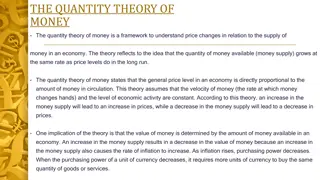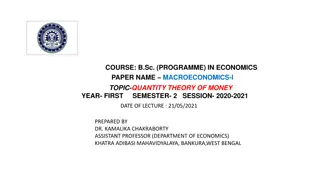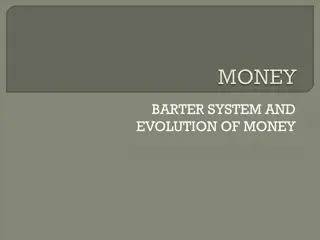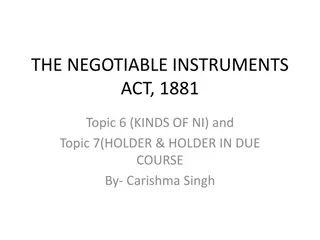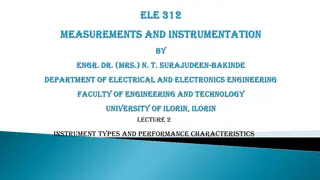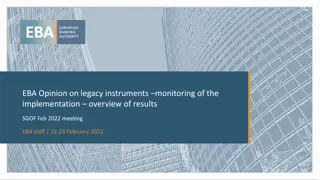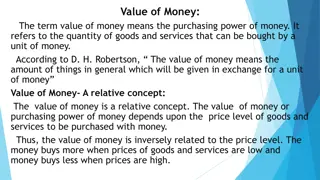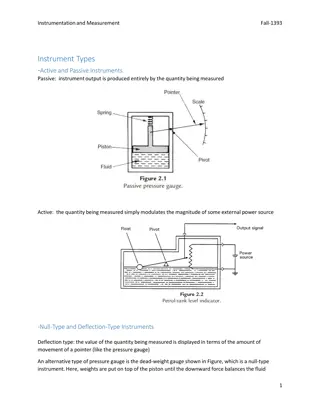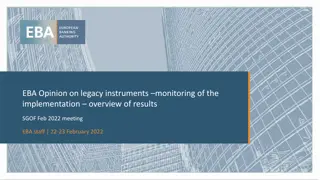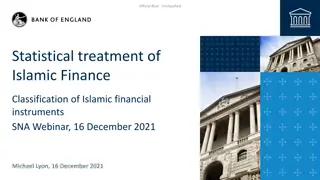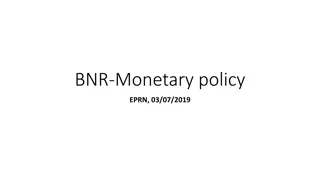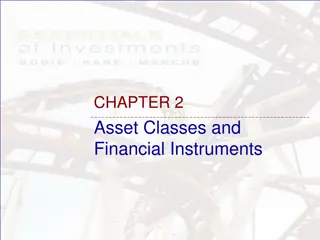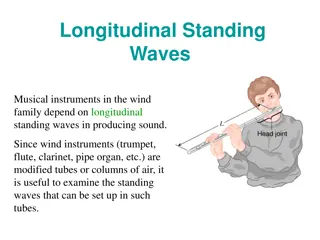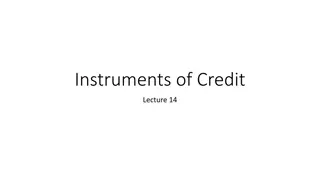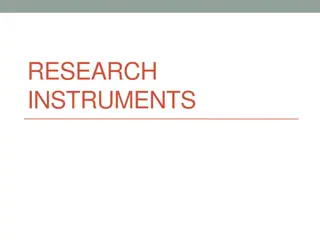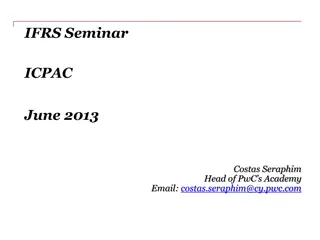
Different Types of Money Market Instruments in India
Explore the variety of money market instruments available in India, including Treasury bills, commercial papers, certificate of deposits, commercial bills, repurchase agreements, and banker's acceptance. Learn about how these instruments are used in the financial markets for short-term funding and investment opportunities.
Download Presentation

Please find below an Image/Link to download the presentation.
The content on the website is provided AS IS for your information and personal use only. It may not be sold, licensed, or shared on other websites without obtaining consent from the author. If you encounter any issues during the download, it is possible that the publisher has removed the file from their server.
You are allowed to download the files provided on this website for personal or commercial use, subject to the condition that they are used lawfully. All files are the property of their respective owners.
The content on the website is provided AS IS for your information and personal use only. It may not be sold, licensed, or shared on other websites without obtaining consent from the author.
E N D
Presentation Transcript
FINANCIAL MARKETS
Different Types Of Money Market Instruments
Different Types Of Money Market Instruments Several types of money market instruments are available to be traded. A few of these are given below: Treasury bills (T-Bills) Treasury bills or T-Bills are issued by the Indian Government to fulfill its short-term obligations. They are considered the safest among the money market instruments in India. They are sold at a discounted rate but their full-face value is paid at the time of maturity, thus leaving room for capital gains. Commercial papers (CPs) Commercial papers include unsecured promissory notes that are issued by reputed, large companies. Since they are not secured, they offer higher returns than T-Bills.
Different Types Of Money Market Instruments Certificate of deposits (CDs) These are negotiable term deposits that are accepted by banks. Certificates of deposits (CDs) differ from fixed deposits (FDs) as the former are freely negotiable and are issued for huge amounts like INR 1 lakh and its multiples. Commercial bills Commercial bills are another popular instrument of the Indian money market, and they work like bills of exchange. A bill of exchange is drawn on the buyer of certain goods by the seller of those goods. When a bank accepts this bill of exchange, it is called a commercial bill. A seller, when in need of money, can get this bill discounted. Call and Notice money Sometimes, banks and other financial institutions may borrow for a very short period to manage their cash flows. Call money is the short-term borrowing or lending of funds for a day whereas notice money refers to borrowing or lending for up to 14 days without any collateral.
Different Types Of Money Market Instruments Repurchase agreements (Repo) Repurchase agreements are commonly referred to as repo or reverse repo. These are sale agreements wherein the party selling the security agrees to repurchase it from the buyer at a later date. The purchase price also includes a rate of interest that is known as the repo Repos are effective tools to raise short-term funds for the seller and provide a decent rate of return on the investment to the buyer. rate. Banker s Acceptance (BA) Certain individuals and organisations use a financial instrument created in the name of the bank. These are called Banker s Acceptance. The party issuing the instrument must pay its holder a stipulated amount within a period of 30 days to 180 days. The investor s profit is the difference between the issue price and the sale price.

